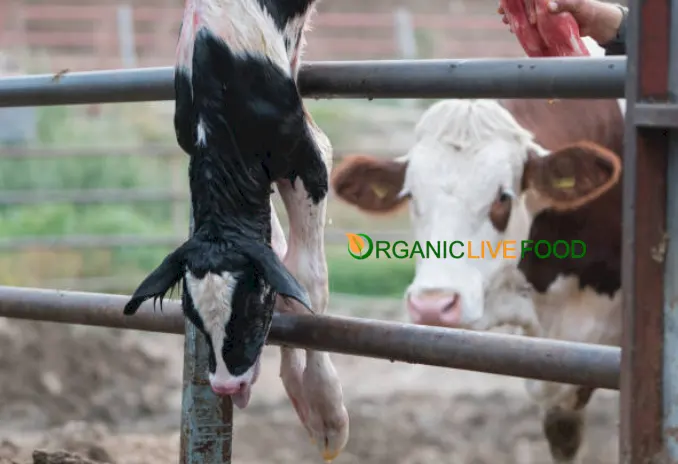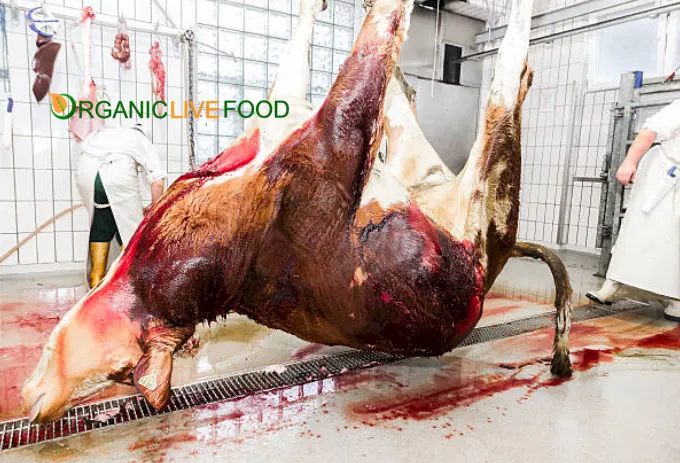The Food Safety and Inspection Service (FSIS) agency under the U.S. Department of Agriculture (USDA) has lost almost all credibility due to its mismanagement and incompetence.
FSIA is responsible for ensuring the safety and accurate labeling of meat, poultry, and eggs in the United States is done in an efficient and accurate way. This agency is well funded and cannot claim that it faces shortage of funds or resources.
With over 10,000 employees, FSIS conducts inspections at more than 6,200 facilities to monitor for various issues such as diseased animals, compliance with regulations, bacterial contamination, and the presence of harmful residues.
They are suppose to ensure health and safety.
But that is not what is happening according to former employees and whisleblowers. In particular, the agency is accused of corruption and adulteration.
There’s a lot wrong at FSIS that needs to be fixed. Corruption and product adulteration was seen with early alcohol production. But the Bureau of Alcohol, Tobacco, Firearms and Explosives was eventually able to rid the agency of industry lobbyists and influence.
There is so much the general public isn't aware of, about food in general and meat in particular, and security itself at a meat processing is extremely loose. It does not even have to be international terrorism––it could be local. Employees could deliberately introduce a razor into product or unintentionally contaminate product with dangerous, infectious diseases.
The FSIS faces significant challenges related to corruption, mismanagement, and conflicts of interest. These issues jeopardize consumer safety and hinder the agency’s mission to protect the public.
Despite its mandate to protect consumers, internal challenges plague FSIS operations. Corruption, mismanagement, low morale, and conflicts of interest hinder inspectors and investigators from effectively carrying out their duties. Large meat producers often receive preferential treatment, while smaller companies face stricter enforcement.

While FSIS plays a crucial role in safeguarding the food supply, reforms are needed to address corruption and improve oversight.
Drawing parallels with historical regulatory successes, such as those in the alcohol industry, underscores the importance of tackling industry influence within FSIS.
Despite the challenges, dedicated employees persevere in their mission to protect public health, albeit against significant odds.

Inspectors face obstacles, particularly those working on slaughter lines, where stopping production for suspected violations can incur significant costs for facilities. Also, violations of humane slaughter laws are reportedly common, with animals not being properly stunned before slaughter.
Instances of misconduct, such as swapping diseased animals for healthy ones, highlight systemic issues within the meat industry.
Despite some successful interventions like the Rancho Feeding Corp. recall, lobbying efforts and legal maneuvering often impede or delay necessary recalls.
To add this all these challenges, language barriers and deliberate scams pose additional challenges to ensuring food safety, with seafood inspections being particularly complex.
The threat of agroterrorism adds another layer of concern, as loose security measures in processing plants could potentially be exploited.

A diet with limited meat consumption, often referred to as a semi-vegetarian or flexitarian diet, emphasizes plant-based foods while reducing the intake of meat, poultry, and seafood.
This dietary approach focuses on incorporating a variety of fruits, vegetables, whole grains, legumes, nuts, and seeds into meals, providing essential nutrients such as fiber, vitamins, and minerals.
By minimizing meat consumption, individuals may experience various health benefits, including improved heart health, better weight management, and a reduced risk of certain chronic diseases like type 2 diabetes and certain types of cancer.
Also, adopting a diet with limited meat consumption can also have positive environmental implications by conserving resources, reducing greenhouse gas emissions, and mitigating the impact of animal agriculture on the planet.
With a diverse array of plant-based options available, individuals can enjoy flavorful and nutritious meals while supporting their health and the environment.
A diet with limited meat consumption can have several benefits for both health and the environment.
Health Benefits:
Environmental Impact::
Tips for a Balanced Diet with Limited Meat::
A balanced diet is essential, regardless of meat consumption. Consult a registered dietitian or nutritionist to tailor your dietary choices to your individual needs and preferences.
Offering insights into losing weight quickly, the OrganicLiveFood.com blog delivers effective and sustainable strategies for weight management. It goes beyond mere diet plans by exploring the convenience of ready-meal delivery services, simplifying healthy eating for busy individuals.
The inclusion of valuable information on health benefits, nutritional data, and the advantages of herbs and spices empowers readers to make informed choices about their dietary habits.
Additionally, the blog highlights the significance of incorporating superfoods and nutrient-rich options into daily meals, promoting overall health.
By addressing the both diet and fitness, the blog becomes a one-stop destination for those striving to achieve a balanced and healthy lifestyle, creating a supportive community centered around holistic well-being.
Nutrition and weight management are essential for ensuring optimal health, vitality, and overall well-being.
Each individual's dietary needs vary based on factors such as age, gender, activity level, and health status.
Various weight loss plans, including the Atkins diet, ketogenic diet, paleo diet, Mediterranean diet, intermittent fasting (such as 12:12 and 16:8), and tailored diets for specific demographics like women, seniors, and children, offer different approaches to achieving weight loss and promoting health.
Additionally, incorporating fresh, organic meal kits into one's routine can simplify meal preparation and ensure access to nutritious foods while supporting weight loss goals.
These approaches emphasize the importance of balanced nutrition, anti-inflammation, mindful eating, and sustainable lifestyle habits to support long-term health and vitality.
Here are some of the main questions people have about health, diet, and weight management:
2. What is the best diet for weight loss?
3. How many calories should I eat to lose weight?
4. What are the most effective exercises for weight loss?
5. What foods should I avoid when trying to lose weight?
6. What is the ketogenic diet and does it work for weight loss?
8. Are there any weight loss supplements that actually work?
9. What are some healthy meal prep ideas for weight loss?
10. How can I stay motivated to lose weight?
11. What is 'Precision Nutrition' and does it work or help to lose weight?